It’s easy to say that you’d like to live, work, or shop more sustainably, but with so many conflicting resources, it can be difficult to know where to start.
Whether you’re curious about the role of sustainability in environmental policy, the ways in which you can be sustainable in your day-to-day life, or cooking more sustainable meals, this list has a starting point for you.
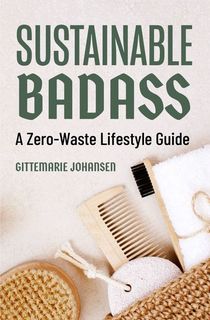
Sustainable Badass
If you don’t know where to start with sustainability practices, start with Sustainable Badass. Well-known for her zero-waste and anti-haul content on her Youtube channel, Johansen is a passionate advocate for sustainable living. This book emphasizes the power that you have as a consumer to positively impact that planet by making informed choices.
Johansen also acknowledges the diverse challenges people face, offering guilt-free options for those dependent on certain unsustainable materials for either health reasons or financial constraints. With a focus on sustainable alternatives, Sustainable Badass guides you through the theoretical and practical aspects of living sustainably.
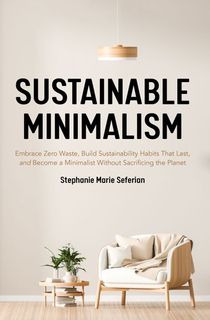
Sustainable Minimalism
If you, like me, are interested in minimalism but don’t know where to begin, give Seferian’s Sustainable Minimalism a look. Seferian addresses the need for eco-minimalism in a consumer-driven society. The cycle of overconsumption is consistently fueled by our 24-hour media and advertising cycles, and Seferian urges readers to break free from this pattern.
While other resources may offer a pie-in-the-sky approach to becoming a minimalist, this book gives the reader a realistic plan for adopting sustainable minimalism.

#EATMEATLESS
Living sustainably doesn’t start and stop at your commercial consumption. There are ways to tailor your meals to have a more positive environmental impact. With over fifty delicious vegan recipes, The Jane Goodall Institute makes a practical case for the global and personal health advantages of veganism.
This cookbook also emphasizes the importance of utilizing local and seasonal produce, limiting the negative effects of cooking and eating meat. And remember—even if you don't want to go completely meatless, you can still eat meat less.
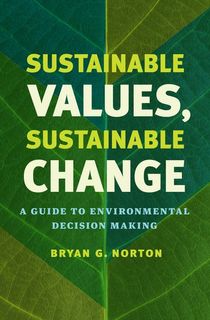
Sustainable Values, Sustainable Change
Norton’s Sustainable Values, Sustainable Change offers a rounded perspective on sustainability. Norton acknowledges the ways in which environmental damage cannot be outright solved, but is a situation that needs to be actively adapted and managed. This book makes a bid for a democratic approach to environmental improvement and decision-making.
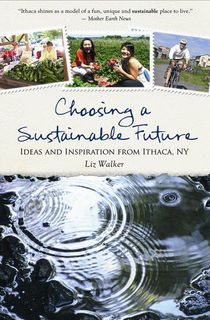
Choosing a Sustainable Future
Walker’s book examines the efforts made to live more sustainably by Ithaca, New York. Rather than a how-to, like Sustainable Badass and Sustainable Minimalism, Choosing a Sustainable Future offers insight into the methods that were actively employed in Ithaca.
The efforts spanned education on sustainability, green energy, challenging systemic blocks, and governmental attitudes and improvements around sustainable efforts.
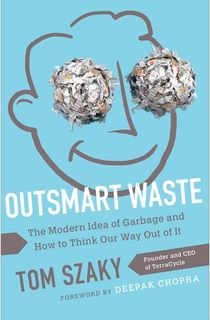
Outsmart Waste
Tom Szaky, the CEO of TerraCycle, a company known for recycling hard-to-recycle materials, shares insights into the global waste crisis and offers practical solutions. He encourages individuals and businesses to find creative ways to repurpose and recycle materials.
Outsmart Waste advocates for a better understanding of how waste is produced, and how it can be reconceptualized and repurposed.
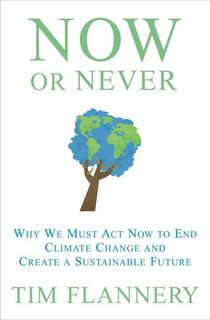
Now or Never
Flannery’s essay looks into the immediate changes that can be made to aid the rapidly shifting landscape of climate change. Using the basic principles of the carbon cycle, Now or Never examines the negative impacts of fossil fuels and rising temperatures. Making shifts such as greater adoption of electric vehicles and finding ways to harness geothermal energy could aid in the slowing climate change.
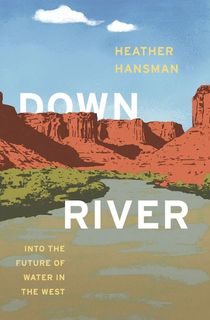
Downriver
Hansmen discusses the preconceived notions, doubts, fears, and dangers that the West faces as she traverses the Green River. Downriver examines the troubles and strategic use of the Colorado River Basin. She delves into the livelihoods that rely on the water, as well as the impact that climate change has on the surrounding areas.
Hansmen discusses the realities and difficulties of water conservation, exploring the conflicting concerns and demands of the communities that rely heavily on the Colorado River Basin.

Fashionopolis
Fashionopolis takes a critical look at the environmental and ethical impact of the fashion industry. The book sheds light on the detrimental effects of the fast fashion cycle, emphasizing issues such as pollution, exploitation of labor, and the subsequent depletion of natural resources.
Dana Thomas takes readers on a journey through the fashion supply chain, from production to consumption, exposing the challenges and consequences associated with each stage. Fashionopolis encourages readers to reconsider their relationship with clothing, and promotes a more sustainable and responsible approach to fashion.

Cradle to Cradle: Remaking the Way We Make Things
Cradle to Cradle challenges typical industrial approaches to design and production. McDonough and Braungart propose a paradigm shift in the way we manufacture products, moving away from the "cradle-to-grave" model to a more sustainable and regenerative "cradle-to-cradle" approach.
Instead of viewing waste as a problem, they propose embracing discarded products as resources. The “cradle-to-cradle” design philosophy is focused on creating products that can be recycled or repurposed repeatedly, eliminating the concept of waste altogether. They offer five key principles to this process: Material Health, Material Reutilization, Renewable Energy, Water Stewardship, and Social Fairness.

Unraveled: The Life and Death of a Garment
When’s the last time you thought about how your jeans were made? In fact, when’s the last time you wore a pair of jeans? I’m willing to bet that you’re wearing a pair of jeans right now—
…Alright, maybe you aren’t. But have you ever gone out of your way to think about how your favorite pair of jeans were made?
Unraveled: The Life and Death of a Garment follows the process of making a single pair of jeans. It takes the reader, and the jeans, on an in-depth international journey, from harvesting the materials, to cleaning, sewing, production, use, and eventually, the discarding of the garment. Bédat uses the lifecycle of this single garment to give greater context to the industry of making, selling, and shipping garments.



